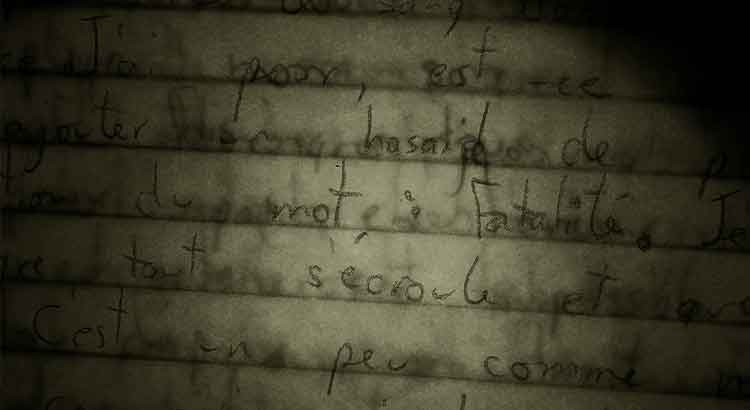It has been noticed that the poet easily becomes a good prose writer, while the opposite hardly ever happens. Compared to prose, poetry is so much more difficult that the first seems almost funny to the poet. To compose verses, one must first be in a propitious state of mind, that is, in a state of mind that allows one to concentrate entirely on the composition. Dispersed, the mind does not make poetry. Then, the slowness in composing, the technical difficulties, the large number of elements that must be harmonized in the creation, all this, over time, accustoms the mind to a patience and discipline that, for prose lines, is far beyond what is necessary. One does prose by force; fluid and natural prose. The simple movement of the fingers is enough to stimulate mental creation which, as if by automatism, registers itself as it is being created. How different it is to write poetry! The prose writer who is used to this almost therapeutic ease, if he risks composing verses, will find something very, very different…
Tag: literature
Verlaine Seems Like a Dostoievskian Character
I go through a volume of Verlaine and the impressions blend to a point where it is impossible to risk any conclusion. All this innate irreverence, this indecent biography, these lines that mix ecstasy and fatigue, this terribly disturbed soul… Verlaine seems like a Dostoievskian character on the verge of madness. And how well he writes! It is as annoying as natural that his work, that is, the work of a deviant artist, has resonated so strongly, especially among the countless deviants who claim to be but will never be artists. But is undeniable the talent with which Verlaine represents, to say with Carpeaux, his “musical sensations”. A comparison with Villon is imperative, and recognition is equally imperative. Great artist!
Let Them Come Out as the Mirror of the State…
I am in the final verses of another little volume of poems. In these nine or ten months of work, I am pleased to note that I have sat at the table only with a motivation similar to that of a Vigny, an Antero, a Leopardi. And as a result, the verses, all of them, came out heavy, totally devoid of that “grace” that Goethe spoke of. Or, at least, that is how it seems to me. I think it is unlikely, if not impossible, that I will ever submit myself to the extremely exhausting work of hunting for words to produce that “grace” that so delights. Even if a blessing falls into my bank account, even if I am in the best of moods, it operates something as if automated by habit: psychologically, sitting down to compose verses fulfills an almost religious sequence that fills my mind with a seriousness that repels the futile, the light, the “graceful”. If is to make verses, let them come out as the mirror of the state of someone’s soul that sees them as the last chance to express what pulses strongest in him. Let them come out disturbed, complex, unpleasant! And may they never look like the person who wrote them was having fun…
For the Beginning Artist, It Is Intimidating to Find Himself…
For the beginning artist, it is intimidating to find himself preceded by dozens of centuries and an incalculable number of other artists who have done what he only intends to do. If we add the critics and art theorists, we will have an infinite number of judgments, schools, definitions of what is or is not art, what is or is not good, what should or should not be done. In this, the one who is still struggling to find the expression of what he feels will find himself bombarded and will hardly risk the first step, it being more comfortable to silence his inner voice. The truth, however, is that the artist has to assume himself, and the sooner he does so, the better. All this immense past, which enchants and intimidates, must be used to the extent that it is useful to him, and should never be an obstacle to the expression of what he thinks is fair. It takes courage! And, moreover, personality to execute exactly what he wants.



